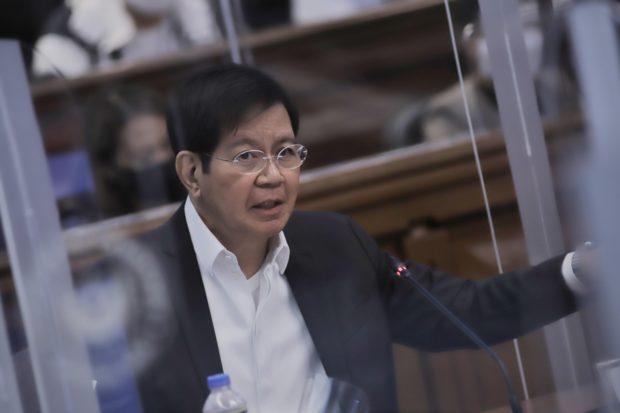Lacson rejects arming anti-crime groups, says public will wonder if ‘PNP is helpless vs crime’
MANILA, Philippines — Amid a proposal to arm anti-crime civilian groups, the Philippine National Police (PNP) should first focus on showing that it is competent in protecting the public, Senator Panfilo Lacson said Wednesday.
Lacson, who previously served as PNP chief, made the remark as he rejected the proposal to arm anti-crime civilian groups. The proposal was earlier backed by PNP chief Guillermo Eleazar.
“The PNP should make it a point first to show that it is efficient, professional and competent to protect civilians on the streets from malefactors – including those with unlicensed guns and irresponsible gun holders that make them a threat – before it issues PTCFORs (permits to carry firearms outside residences) to deputize civilian ‘volunteers’ as force multipliers,” Lacson said in an interview with Teleradyo.
“Otherwise, the public would wonder if the PNP is that helpless to ask for help from civilians. Besides, we do not want guns to end up with those prone to road rage and similar incidents.”
Lacson said the PNP should be stricter in issuing PTCFORs to civilians as well as ranking government officials.
Article continues after this advertisementThe senator said that back when he was PNP chief, he imposed a uniform standard for everyone seeking to secure PTCFORs, without exception.
Article continues after this advertisementAmong those who had to follow the same procedure include late Senator Miriam Defensor-Santiago and then senator Benigno “Noynoy” Aquino III who had to go to PNP headquarters in Camp Crame to take the gun safety seminar and written exams required for being issued the permit.
Lacson said the only time he waived the requirements was for then President Joseph Estrada, who as Commander-in-Chief of the armed forces always faces potential security threats.
It was President Rodrigo Duterte who floated the idea of arming anti-crime civilian groups to help address criminality in the country. However, presidential spokesperson Harry Roque said Monday that the proposal was not yet a government policy.
